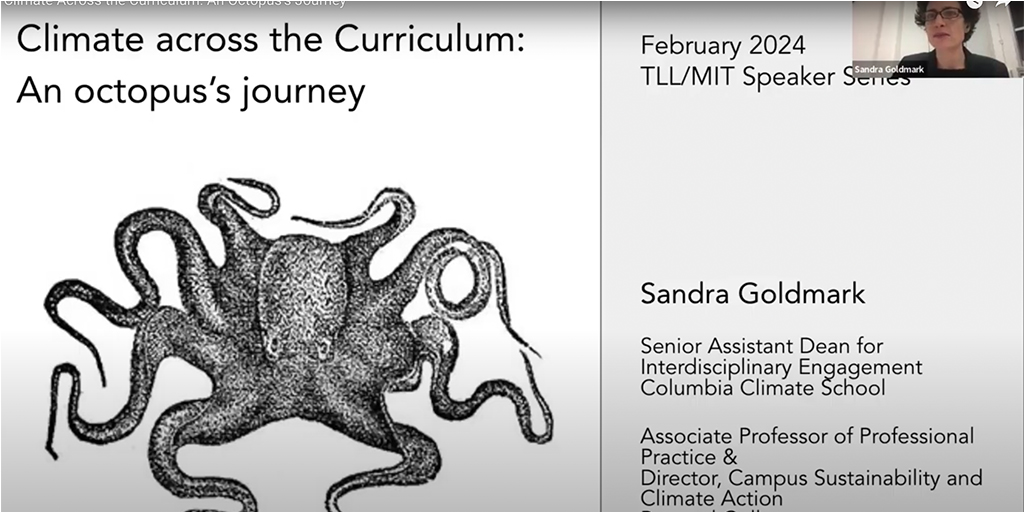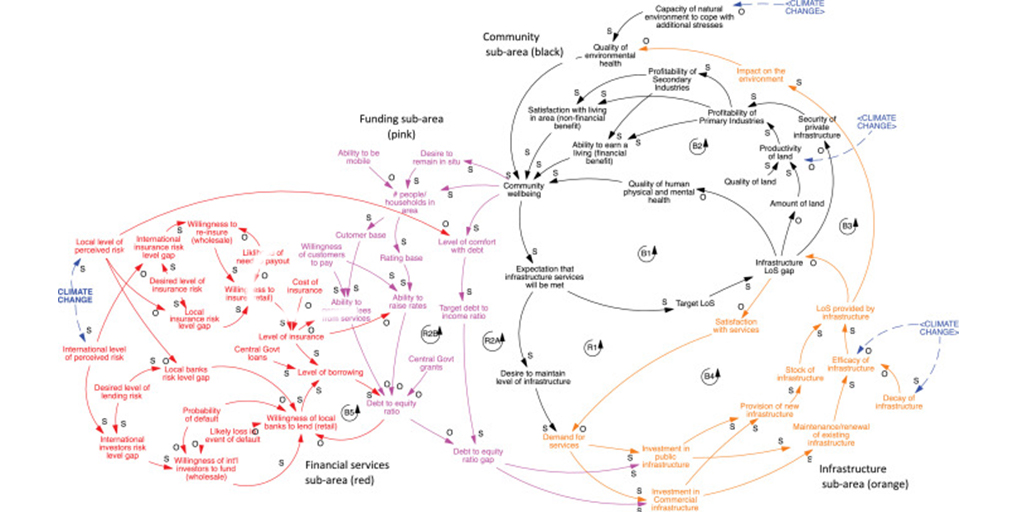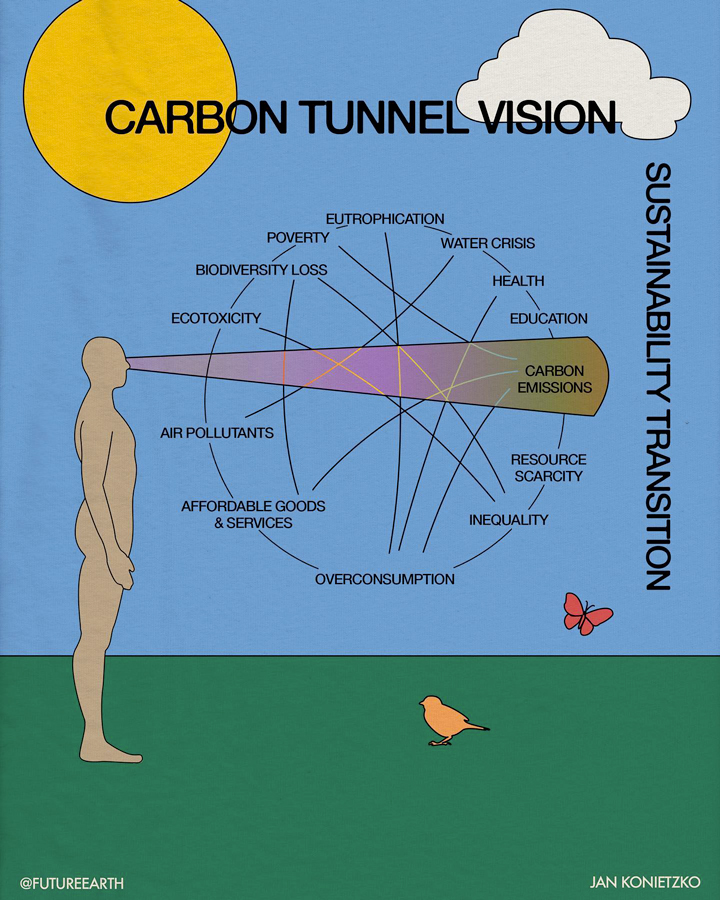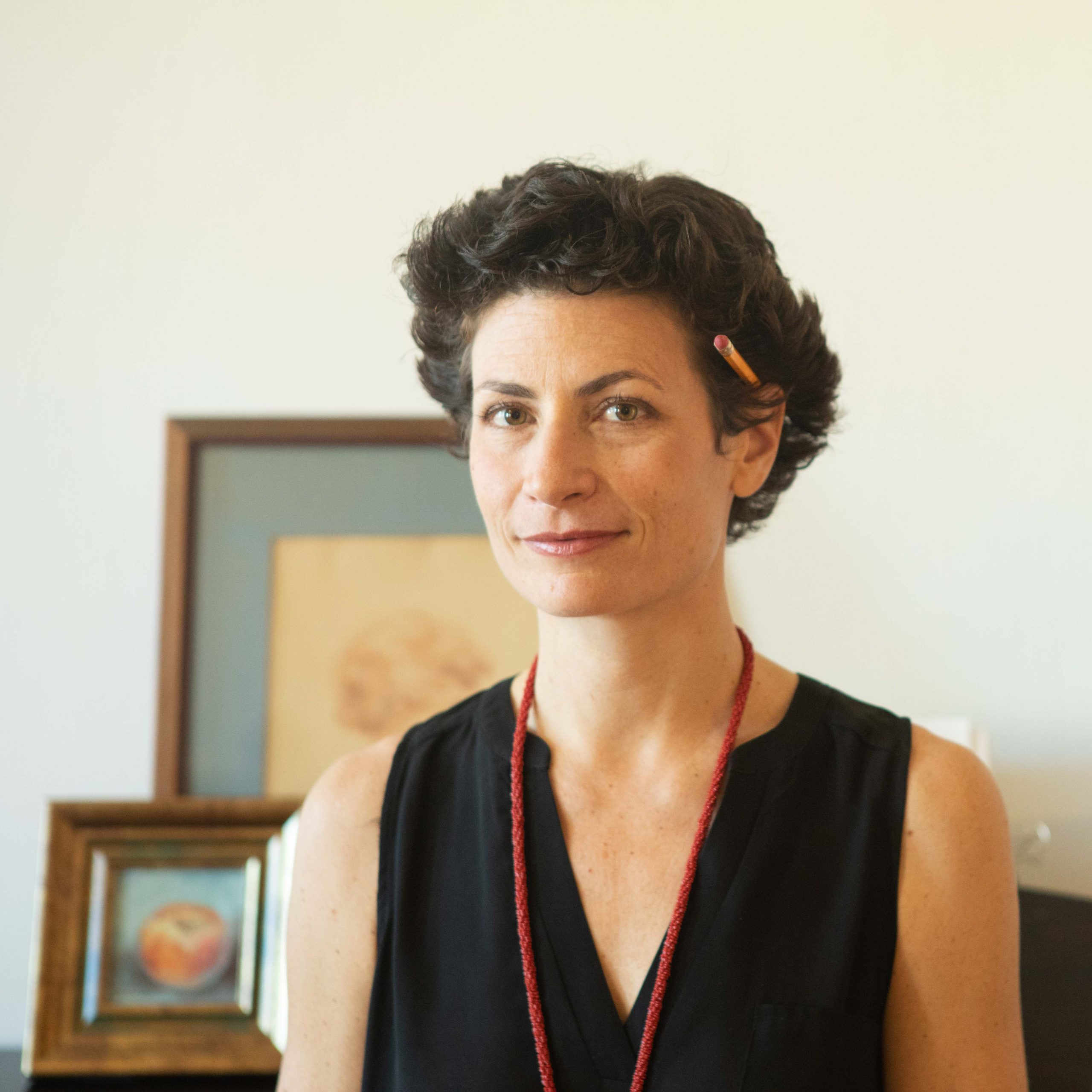Climate Across the Curriculum: An Octopus’s Journey

View Recording on Panopto (restricted to the MIT community).
On Thursday, February 14, we hosted Dr. Sandra Goldmark to discuss climate-responsive teaching in any discipline.
Designing Change
Dr. Sandra Goldmark recounted her professional journey from being an environmentally conscientious set designer and theater professor at Barnard College with no background in climate science to becoming a circular economy expert and leader in sustainable theatrical design and interdisciplinary climate education at Columbia. “There I was at home, rinsing my yogurt cups and bringing my little canvas bag to the supermarket. But at work, as a theatrical designer, I created thousands and thousands of pounds of waste every show, every season,” Goldmark confessed. Her commitment to sustainability and the environmental impact of her work as a set designer led to such strong feelings of inner conflict that she considered changing her career. Instead, she used her passion for storytelling through material culture and design to expand her “intellectual playground” and deeply dive into her discipline’s climate space to learn how to make changes that would lead to a more sustainable practice.
Becoming an Octopus
Goldmark’s first change was how she designed her sets, opting to reuse as much as possible and working with her colleagues in the theater department to introduce reuse into budgeting and hiring. Then she founded Fixup, a social enterprise that operated pop-up repair shops throughout New York City staffed by theater artists who would fix broken objects–from clothing to furniture to small appliances–to promote healthier circular consumption patterns beyond the theater community. This experience inspired Goldmark to write a book – Fixation: How to Have Stuff Without Breaking the Planet. Soon, Goldmark was asked to build Barnard’s first Office of Sustainability, where they launched a Circular Campus initiative designed to reduce emissions and waste on campus. At the same time, she was incorporating climate topics into her courses to help her students see the connection between the climate crisis and set design. Overlapping with her teaching, Goldmark also began working with three very different groups of colleagues to think about how to incorporate climate topics into their teaching and practice, regardless of their discipline. This included pedagogy workshops to bring faculty from different disciplines together to discuss strategies for integrating climate into their curriculums, creating climate action plans with her performing arts colleagues, and working with faculty from Columbia’s College of Dental Medicine who wanted help from the Climate School to weave climate-related topics into their curriculum. Most recently, she became the Senior Assistant Dean for Interdisciplinary Engagement at the Columbia Climate School.
Goldmark compares the new roles and areas of expertise she developed throughout this journey to becoming an octopus. To “wrap her arms” around the complexity of the climate crisis, she had to grow more of them. However, it wasn’t only because she felt that she lacked expertise in climate science; rather, she realized that the topic itself–climate change and sustainability–is a “wicked problem” that demanded an octopus-inspired response.

A Wicked Problem
Climate change, by definition, is a wicked problem as defined by Horst Rittel and Melvin Webber in their 1973 article “Dilemmas in a General Theory of Planning,” which describes complex social issues that are “tough, interconnected, complex challenges that don’t respond well to simple or singular solutions” (Rittel & Webber, 1973). It affects every part of society–the energy we use, the way we eat, the materials we produce, and how we earn our livelihoods. It requires cooperation among multiple stakeholders–governments, industry, and non-governmental organizations–with competing priorities and no central authority to enact and enforce policy. (Reif, 2021). The messy, tangled problem of climate change requires an interdisciplinary approach to finding multidimensional solutions. To illustrate this, Goldmark quoted Argentine artist Tomás Saraceno from a recent article in the New York Times:
“Science is not able to communicate, or explain, or be empathic enough to really make a change. Politicians are not making it. Artists are not making it. Unless we leave our comfort zone of saying, ‘I’m an artist alone’ or ‘I’m a scientist alone,’ unless we engage with politics, with social sciences, with philosophy and really try to collaborate, then the world will keep going as it is” (Nayeri, 2023).
Radical Collaboration and Finding Your Superpower
Because the climate crisis is a wicked problem, Goldmark said it takes “radical collaboration” to effectively engage in solving it. Goldmark stressed that becoming a climate octopus is not only about branching out across disciplines and “growing more arms,.” It also requires a willingness to radically collaborate to identify and leverage the unique strengths needed for this enormous task. James Engell of Harvard puts it this way. “For everyone who engages, from whatever angle, in climate disruption…we must act as mutual, reciprocally subservient co-mentors.” In other words, finding the superpowers each discipline possesses. For example, Goldmark discovered that theater artists have the superpower to “imagine a world and then make it real.” And that is what the climate crisis calls for – imagining a new future world.

A Climate Ready CU Framework_draft
From this period of professional growth and radical collaboration with diverse colleagues emerged a set of tools Goldmark calls a Climate Ready Curriculum framework. The framework (still in draft form1), pulled together resources and colleagues from multiple disciplines across the Climate School and consists of three modules:
- Climate Basics: simple, accessible resources on climate fundamentals meant to provide some level-setting and shared vocabulary for non-climate experts.
- Intersections: designed to help groups discover how their practice, industry, or discipline relates to the climate crisis, how they can embrace the complexity and interconnectedness of the problem, and begin to identify areas in which they can make changes and
- Change-Making and Leadership: provides concrete tools, practices, and skills to lead organizations or industries through effective change-making.
Each module is designed to build understanding, identify connections, and develop actionable strategies for climate-responsive transformations in various sectors. It is hoped that the framework will be flexible enough to help any group, organization, or discipline of non-climate experts to “discover and flex those octopus arms, help them practice that radical collaboration across disciplines, and help them find their superpowers, their angle, their capacity to make change in their sphere of influence, all of this in service of making change in their own sphere of influence and, of course, in the broader world.”
Goldmark challenged instructors to help their students develop the change-making and leadership skills so desperately needed to confront the wicked problem and existential threat of the climate crisis. By encouraging students to engage in different skills beyond traditional disciplinary boundaries, instructors can help their students and classrooms to become “octopus-like” collaborative entities.
- Goldmark invited the audience to provide feedback during her talk. ↩︎

About the Speaker
Sandra Goldmark is a designer, professor, and circular economy expert. Sandra serves as Senior Assistant Dean for Interdisciplinary Engagement at the Columbia Climate School, and Director of Sustainability and Climate Action and Associate Professor of Professional Practice at Barnard College. From 2013-2019, Sandra founded and operated Fixup, a social enterprise repair service dedicated to healthy and circular patterns of consumption. Sandra is a co-creator of the Sustainable Production Toolkit, a free climate action and sustainability resource for performing arts organizations, and serves on the Board of the Hudson Valley Shakespeare Festival. Her work has been featured in The New York Times, The Wall Street Journal, MSNBC, the BBC, The Sunday Times of London, The Daily News, Salon.com, and many more. A graduate of Harvard College and Yale University, Sandra is the author of Fixation: How to Have Stuff without Breaking the Planet.
References
Cradock-Henry, N. A., Connolly, J., Blackett, P., & Lawrence, J. (2020). Elaborating a systems methodology for cascading climate change impacts and implications. MethodsX, 7, 100893. https://doi.org/10.1016/j.mex.2020.100893
Nayeri, F. (2023, September 20). Tomás Saraceno mixes science with his art. The New York Times. https://www.nytimes.com/2023/09/20/arts/tomas-saraceno-art-science-interview.html
Reif, L. R. (2021, April 19). The ‘super wicked problem’ of climate change is our Earthshot. BostonGlobe.com. https://www.bostonglobe.com/2021/04/19/opinion/super-wicked-problem-climate-change-is-our-earthshot/?event=event12
Rittel, H. W., & Webber, M. M. (1973). Dilemmas in a general theory of planning. Policy Sciences, 4(2), 155–169. https://doi.org/10.1007/bf01405730

